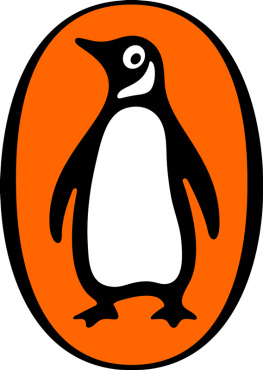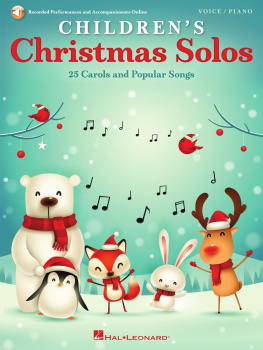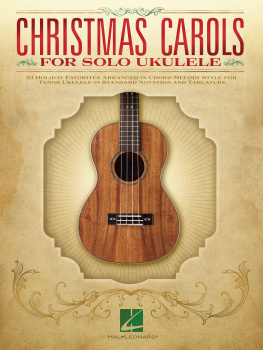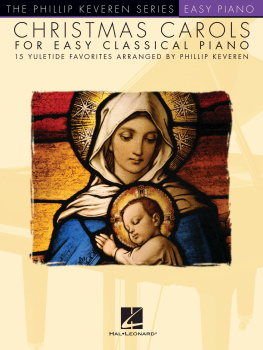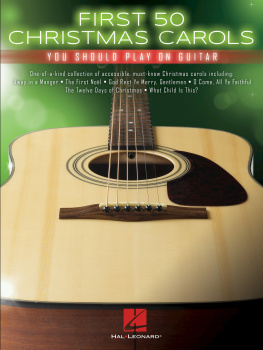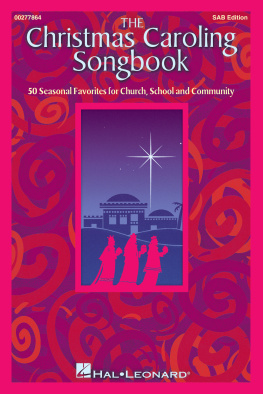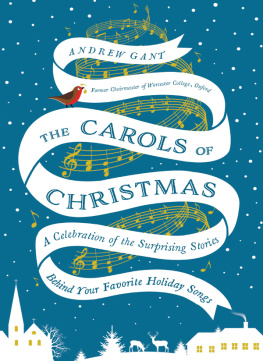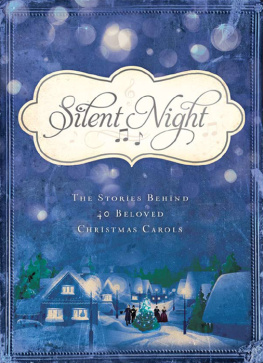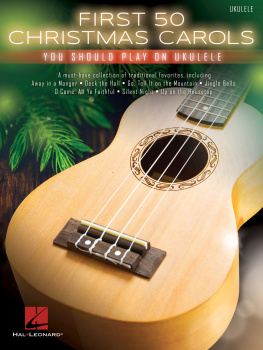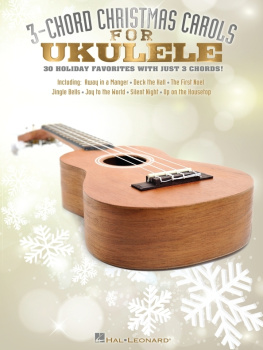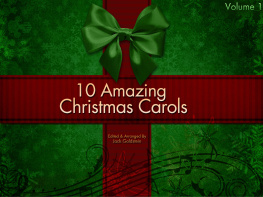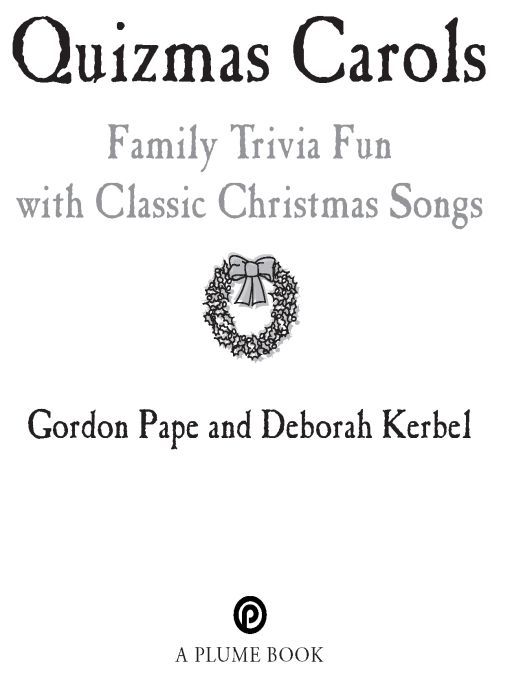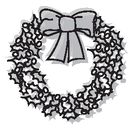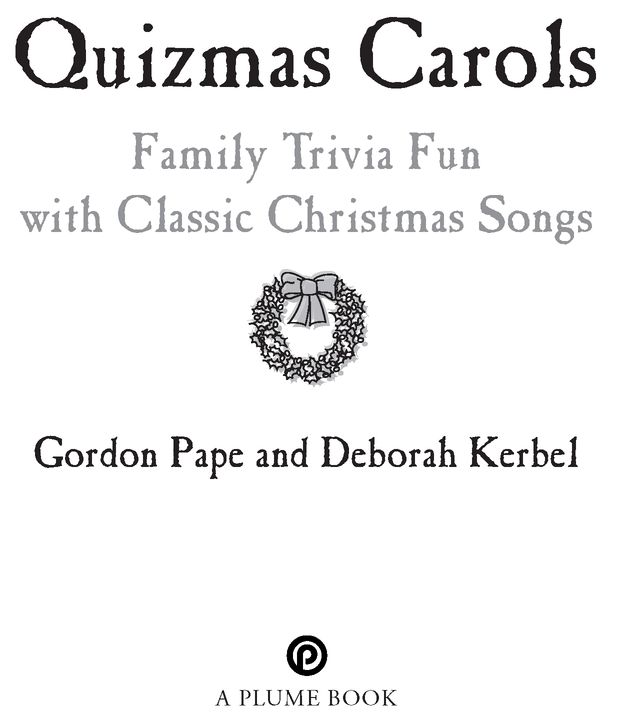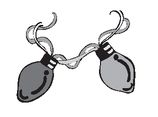Table of Contents
A PLUME BOOK
Quizmas Carols
GORDON PAPE is the author/coauthor of many acclaimed books, including bestselling investment guides, novels, nonfiction humor, and the Quizmas series, of which this is the third book. He is the father of three and the grandfather of eight and has spent many Christmases playing Quizmas with family and friends.
DEBORAH KERBEL, Gordons daughter, is a seasoned Quizmas player and coauthor of the original Quizmas: Christmas Trivia Family Fun and Family Quizmas, a book of classic Christmas stories and trivia for bedtime reading to young children. She has a young son and a daughter, who are already enthusiastic participants in the family Quizmas tradition.
The authors live in the Toronto area.
Dedication
To Shirleythe wife, mom, and nana who lovingly upholds our familys Christmas traditions.
Introduction
We all love Christmas carols. They are so much a part of our holiday tradition that its impossible to imagine a celebration without them. Christmas without carols? It would be like spring without flowers, like a birthday without a cake, like a forest without birds. Much of the joy would be gone.
Of course, we can always have too much of a good thing and carols are no exception. A radio station in Fort Myers, Florida, starts playing them twenty-four hours a day right after Thanksgiving, prompting everyone but the most ardent carol-lover to immediately turn the dial. In 2004, labour unions in Austria demanded that stores limit carols to one hour a day, saying that their incessant playing constituted psychological terrorism to employees. A couple of years later, Paul Clarke, a spokesman for Britains Union of Shop, Distributive and Allied Workers, expressed a similar view in a less dramatic way when he said that listening to the same carols over and over again could create an unhealthy working environment for retail workers. It must drive people to distraction, he was quoted as saying.
Over the centuries, carols have been banned for all kinds of reasons. During the reign of Oliver Cromwell in England, an Act of Parliament passed in 1644 outlawed all Christmas celebrations including singing, on the grounds that it was all an excuse for debauchery and drunkenness. Enforcement was so strict that soldiers in London were empowered to arrest anyone violating the ban. It wasnt until 1660, after Charles II was restored to the throne, that the Christmas prohibition was rescinded and the English people were once again permitted to freely observe the holiday and go carolling.
Cromwells Commonwealth wasnt the only regime to outlaw carols and Christmas. Over the centuries, singing and celebrating during the season have been forbidden in many parts of the world, including France during the Revolution and the New England states under the Puritans. If this seems outlandish today, just check the TV and newspapers during the holiday season. Carol singing is under attack in schools and public places in the United States, Canada, and elsewhere for being politically incorrect and offensive to people of other religions. In some places, school Christmas concerts have become nothing more than a fond memory.
So dont take your carols for granted. They have been threatened in the past and undoubtedly will continue to be in the future. When you sing them during the Christmas season, take a moment and give thanks for your freedom to do so.
Also give some thought to the words that are coming out of your mouth. Some carols are deeply reverent and their lyrics express that spirituality in solemn and devout terms. Think of O Holy Night, O Little Town of Bethlehem, and Silent Night. Others are just plain good fun, like Jingle Bells and Deck the Halls. A few make absolutely no sense at all if you take a minute to think about them. What is I Saw Three Ships all about, really? (Youll find one surprising answer later in this book.)
The origin of the word carol is a matter of some dispute among scholars. Some claim it is derived from a French word, either carole or caroller, both of which refer to a circular dance. However, it seems more likely that the etymology of the word actually dates back to the Greek choraules, defined in the 1883 edition of The Dictionary of Roman and Greek Antiquities as musicians who accompanied on the double flute the chorus of the Greek theatre, or, in general, of the singers in a concert.
The association of carol with dancing does not seem so far-fetched when you go far back into history. During pagan winter solstice celebrations, people sang as they danced inside circular stone rings to give thanks for the return of the sun.
In England and other parts of Europe, many of the earliest Christmas songs were not based on the nativity at all. Rather, they were luck-visit songs (also called wassail songs), which were sung by wandering groups of sometimes disreputable revellers who were looking for free handouts of food and drink. On occasion they added implied threats to their verses to ensure compliance on the part of the often frightened recipients of their musical attentions.
The use of music in religious ceremonies to mark the birth of Jesus is said by some to date all the way back to Pope Telesphorus in the second century, although that has been called into question. There is little dispute, however, over the fact that St. Francis of Assisi revolutionized the use of Christmas music in medieval Europe when he introduced choral nativity pageants to his services. Originally, the songs were in Latin but they were soon adapted to the spoken languages of the common folk.
Martin Luther is credited with making Christmas music an integral part of religious services in Northern Europe in the sixteenth century. Luther personally translated many carols into German and wrote several new ones himself, including some especially for his own family.
In England, Charles Wesley, brother of the evangelist John Wesley, is generally recognized as the first great carol writer. Wesley, who lived from 1707 to 1788, is said to have written more than sixty-five hundred hymns during his life, including such great carols as Hark! The Herald Angels Sing. However, the golden age of carol-writing in England was the Victorian era, which gave us music that ranged from the popular God Rest Ye Merry, Gentlemen to the soul-stirring Hallelujah Chorus from Handels Messiah.
The same period also represented the apex for carol-writing in the United States. There, the inspiration was often political. Some of the best-loved American carols were originally written to promote the cause of abolition or as prayers for peace at a time when the nation was being torn apart by the Civil War. Of course, not all American carols from this time have such a tormented history. Jingle Bells, which was originally written to celebrate Thanksgiving, not Christmas, is simply a song of fun. Some of the first secular childrens carols also date from this period, such as Up on the Housetop.


